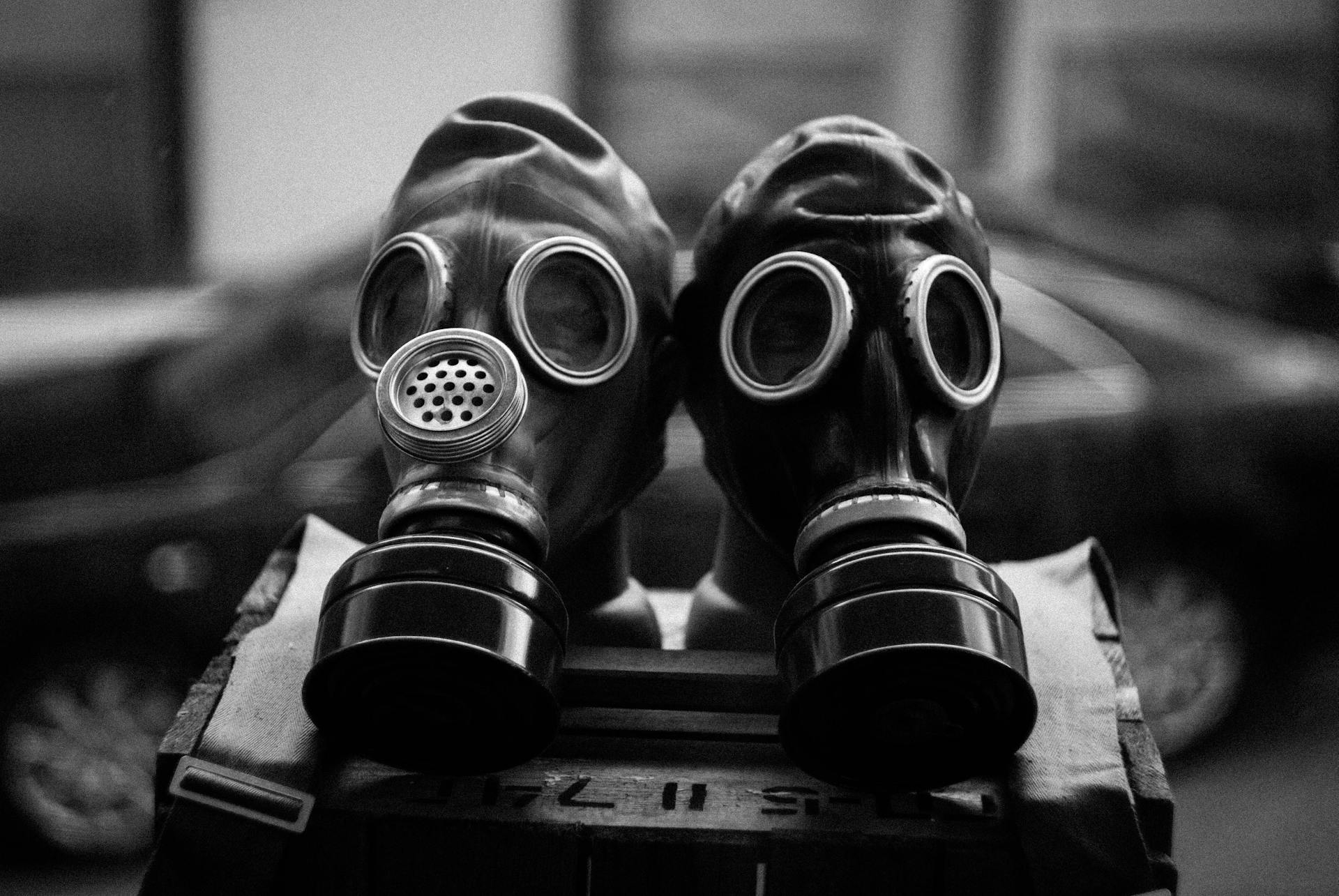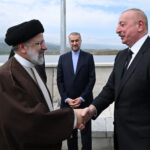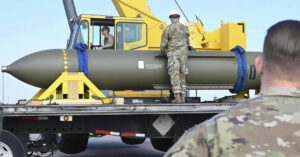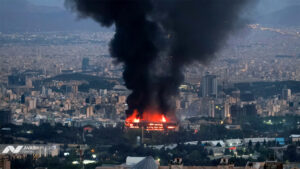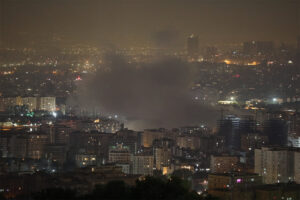WEBINAR – Peter Zeihan’s Risk List: What Keeps a Geopolitical Strategist Up at Night
Please join Peter Zeihan for a webinar on June 5th at 12:00 PM EST on a topic that is near and dear to the hearts of the Zeihan on Geopolitics team: geopolitical risk. This webinar will feature Peter’s reasonable-fear list, focused on issues that in his opinion have the most potential to impact market outcomes.
Everyone is talking about Iran’s potential development of an active nuclear weapon. Before anyone gets too frightened at the prospect of this announcement, let me give you some food for thought.
Before we even touch on the technical stuff, we have to look the source of these announcements; which just so happens to be coming from ultranationalist members of parliament (you know, the MTGs of Iran). Now onto the real stuff. Building a functional uranium explosive device is no easy feat. It requires some seriously complex implosion tech, and don’t get me started on ensuring an accurate delivery of a nuclear explosion.
And even if Iran magically developed nuclear capacity, they would be placing a massive target on their backs. However, there are some other players that you might want to keep an eye on. As geopolitical dynamics shift and security commitments change, there are a handful of countries that would be strong candidates for nuclear development or acquisition.
Here at Zeihan On Geopolitics we select a single charity to sponsor. We have two criteria:
First, we look across the world and use our skill sets to identify where the needs are most acute. Second, we look for an institution with preexisting networks for both materials gathering and aid distribution. That way we know every cent of our donation is not simply going directly to where help is needed most, but our donations serve as a force multiplier for a system already in existence. Then we give what we can.
Today, our chosen charity is a group called Medshare, which provides emergency medical services to communities in need, with a very heavy emphasis on locations facing acute crises. Medshare operates right in the thick of it. Until future notice, every cent we earn from every book we sell in every format through every retailer is going to Medshare’s Ukraine fund.
And then there’s you.
Our newsletters and videologues are not only free, they will always be free. We also will never share your contact information with anyone. All we ask is that if you find one of our releases in any way useful, that you make a donation to Medshare. Over one third of Ukraine’s pre-war population has either been forced from their homes, kidnapped and shipped to Russia, or is trying to survive in occupied lands. This is our way to help who we can. Please, join us.
TranscripT
Hey everybody. Peter Zeihan here coming to you from Poland in downtown parsnip. a lot of you have written in about some of the news that’s coming about, you know, from Iran, about the potential of them actually having an active nuclear weapon at this point. I need to take some air out of that argument.
first of all, these announcements are coming from members of parliament in Iran that are ultranationalist. So it’s kind of like having Cori Bush or Marjorie Taylor Greene announce policies for the government. So, you know, don’t take that too seriously. but more importantly, the technology just in question here, it’s not clear. It’s something that the Iranians can do.
Now, I know that sounds a little weird. We’ve been hearing intelligence agencies across the West warning about the emergence of an Iranian nuclear program or a nuclear weapon for quite some time. But, you know, that’s kind of the point. Supposedly, Iran has been six months away from having an active nuke for 25 years now. And at some point, it’s not just an issue of putting up or shutting up.
It’s an issue of dissecting the technology that’s in question and what is actually necessary. So to have a uranium explosive device, you have to do something that’s called implosion, which is basically having a series of very precision milled explosive plates that surround a plutonium or uranium core and all explode in at the same time in order to compress the sphere of enriched material, which then triggers a runaway chain reaction that triggers the actual mushroom cloud.
this is harder than it sounds, because if you have any flaw in that, or if one of the plates doesn’t go off at exactly the right time, then you don’t get that implosion and the explosion. Instead of funneling in, goes out through one of those spots. And then the nuclei never collide and you never actually get the nuclear reaction.
So getting this all right is very difficult. And it’s something that yes, yes, yes, the United States figured out in the 40s and other countries have cracked the code since. But that doesn’t mean it’s easy. And there is no sign at this point that the Iranians have figured out how to do that. Because if you didn’t do it, not only would you get a nuclear explosion, but you would be able to detect that with, say, earthquake monitors.
So from the point that that happens, you then enter into this really weird spot where you’ve demonstrated the ability to crack the atom, but you haven’t demonstrated the ability to actually deliver that explosion where you want it. So you the thing is this, this device that can do this is going to be fairly large, fairly heavy and difficult to hurl at someone.
So if you’ve demonstrated that you can capture the power of the atom but not deliver it, that is the time when anyone who doesn’t like you is going to hit you very, very, very, very hard to prevent you from getting a deliverable weapon. and Iran knows this. Iran knows that if they managed to demonstrate that they can crack the atom but not deliver it, then everyone will be after them.
So the question is whether they can do it in that or not. I would say they can’t because they haven’t. And even if they did, all that would do is open up a whole Pandora’s box of security problems for them. So am I concerned about Iran for any number of reasons? Sure. This doesn’t make my list. Now, that does raise the question of the broader question of who might want a nuke.
As we’ve seen over the last 80 years, the countries that develop the nuclear arsenal are the ones who don’t think that they can win a conventional conflict. So Israel has nukes because they were worried that we’re going to be overwhelmed by the Arabs. India has nukes because it was concerned about a war with Pakistan and vice versa. China has nukes because they were concerned about Japan and the United States and so on and so on.
And so the countries that the United States has traditionally been concerned about are the ones who might find themselves at a conventional war with the United States. Iran obviously falls into that category. But if you’re looking forward, it’s probably going to be a different list of countries that are on the proliferation list. Because if, if, if the United States backs away from some of its security commitments, the math change during the Cold War and since, the United States has a series of alliances that basically underwrite the security of any number of countries and some American nationalists see that as a problem, see these countries as freeloaders.
But should the United States no longer provide the nuclear umbrella, a lot of these countries are going to feel that they have to take care of themselves. And for many of them who don’t think they can win a conventional fight against a superior conventional force, that means nukes. So during the Cold War, China had nukes to fend us off.
But the Koreans, the Taiwanese and the Japanese felt they didn’t need one. You remove the United States from that strategic competition, and all of a sudden they do. And all three of those countries Japan, South Korea, Taiwan, have civilian nuclear programs and could easily build a bomb in a matter of days or weeks. In the Middle Eastern theory, it’s not so much Iran that I worry about as, say, Saudi Arabia, who may not have the technical expertise to build a bomb, but they certainly have the cash to buy one.
And in the European theater, if the Americans, for whatever reason, are a wall and you’re dealing with the Russians, you have a whole list of countries that are going to want nukes Kazakhstan, Finland, Sweden, Germany and above all else, Poland. So for people who are arguing that nuclear proliferation is an issue, I say, yeah, it is, but the suspects are not the usual ones.

